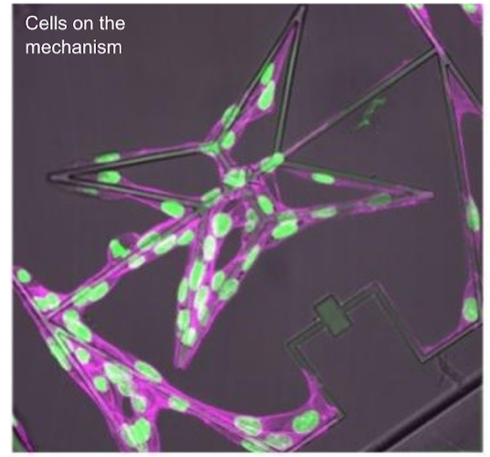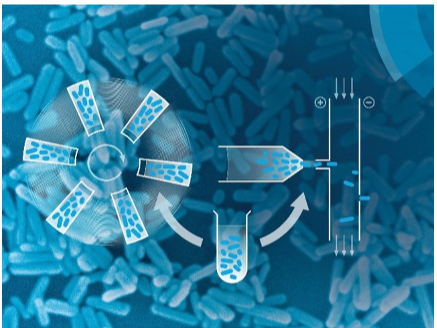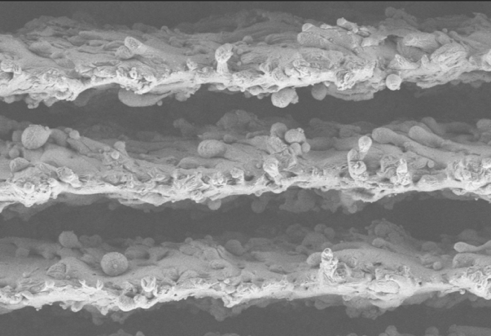Faculty at our school conduct fundamental and applied research on the frontiers of mechanical engineering. Various government bodies, ministries, and private industries support research and development in the following areas.
Biomechanics

We work on the elasticity and viscoelasticity of biological systems. By studying the elasticity of cells we are establishing parameters for characterising individual cells, which could lead to novel methods for disease diagnosis. In the case of viscoelasticity, we are studying the role of MucoCiliary Clearance (a natural mechanism that prevents particles and pathogens from entering the lungs) in determining the fate of inhaled aerosol particles/drugs.
Contact: [Sreenath Balakrishnan] [Ponnulakshmi VK]
Composite materials

We carry out research in the area of mechanics of composite materials and structures, which covers the development of high-performance and lightweight composites such as architectured composites and composites for extreme dynamic loads (e.g. lightweight armours, impact on aircraft panels, etc.). We strive to investigate the intricate behaviour of composite materials through macroscopic and multiscale modelling techniques, fabrication (e.g. 3D printing) and experiments. We frequently use in-house codes as well as commercial software for numerical studies. Our goal is to develop tools to predict composite behaviour for different applications and loading conditions, understand the mechanics at multiple length scales and enhance their performance. We are open to research collaborations, consultancy for industrial projects, and exploring new applications.
Contact: [Harpreet Singh] [Sandip Haldar]
Computational mechanics

We develop and employ state-of-the-art numerical methods to address a wide range of physical phenomena arising in solid mechanics and fluid-thermal sciences. We use continuum as well as discrete methods, viz. FEM, FVM, DEM and MD. Parallel implementations of the numerical methods are achieved to enable the use of the modern HPC facility of the institute. The research domain spans advanced combustion modelling, high Reynolds number turbulent flows, granular media, and multiscale composite materials. Moreover, reduced order models are utilised to understand the physical processes and to enhance the computational techniques.
Contact: [Rudra Narayan Roy] [Harpreet Singh] [Sudhakar Yogaraj] [Ashish Bhateja] [Sandip Haldar]
Energy & Environment

The long-term focus of this group is on research and development related to decarbonization, energetic materials, numerical combustion, and pollution mitigation. Current works being carried out include metal fuel combustion, composite propellants and pyrotechnics, turbulence-chemistry modelling, nano-additives for liquid fuels, indoor air quality, and plasma-assisted pollution control.
Contact: [Anirudha Ambekar] [Thaseem Thajudeen] [Rudra Narayan Roy] [Arindam Das]
Fluid Dynamics

Fluid dynamics is one of the most important classical subjects in mechanical engineering. At our school, we are actively involved in various cutting-edge research activities related to fluid dynamics. Both experimental and theoretical work related to turbulent flow, drag reduction, fluid-structure interaction, underwater cavity dynamics, atmospheric flow, non-Newtonian fluids, surface wettability, capillary flow, flow instability, microfluidics, bioinspired flow are currently being investigated at various research labs of the department.
Contact: [Arindam Das] [Ponnulakshmi VK] [Sudhakar Yogaraj] [Rudra Narayan Roy]
Mechatronics & Robotics

We focus on robotics and mechatronics for marine, industrial, manufacturing, and healthcare applications. Our current research focuses on expanding the horizons of knowledge for cable-driven parallel robots, industrial manipulators, precision motion stages, and micromechanisms for cell manipulation.
Contact: [Keval S Ramani] [Sreenath Balakrishnan]
Particulates, Colloids & Granular Materials

We are interested in understanding the mechanics of discrete systems and their characterisation. Such systems include granular media, colloids, and aggregated aerosols. The specific research goals include understanding the mechanics of granular media, synthesis of nanoparticles through various methods and preparation of stable colloids of such particles, and the characterisation of particulate matter, with a specific focus on aggregated aerosol particles. We employ computational techniques like discrete element methods, high-end experimental setups, as well as modern data-driven techniques.
Contact: [Ashish Bhateja] [Thaseem Thajudeen] [Arindam Das]
Precision manufacturing

We focus on improving the quality and productivity of parts manufactured using various processes such as additive manufacturing, micro-nano machining/finishing, electromagnetic manufacturing, welding, laser-based manufacturing, and lithography. This is achieved through cutting-edge theoretical and experimental research focusing on modelling, control, automation, optimisation and reliability engineering of these processes.
Contact: [Priyabrata Sahoo] [Sachin D Kore] [Keval S Ramani] [Rajesh P Gaonkar] [Arindam Das]
Prospective students, postdocs, and collaborators from academia/industry are welcome to contact the respective faculty for additional details.
